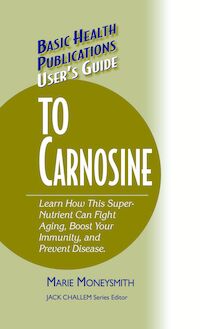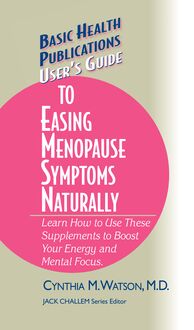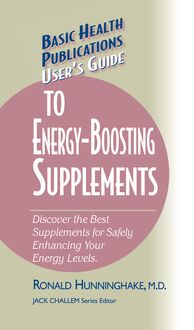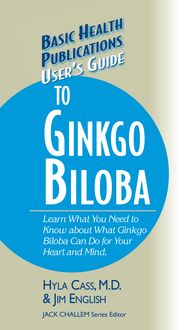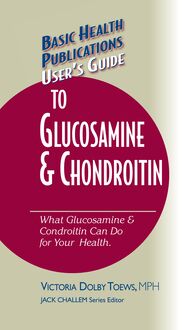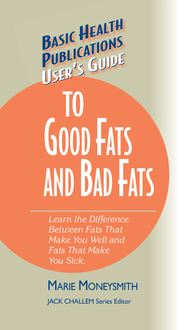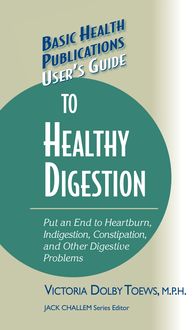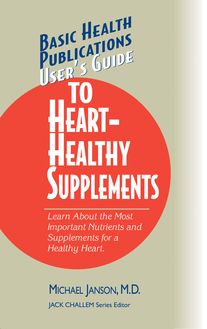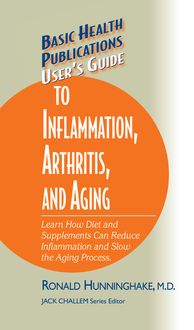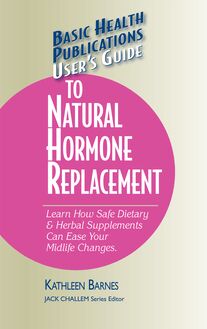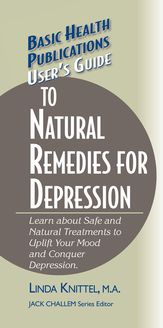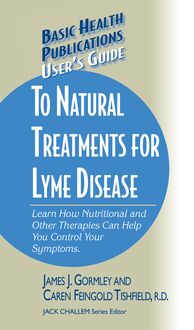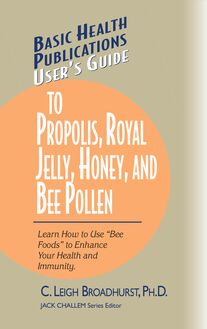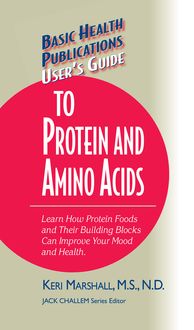-
 Univers
Univers
-
 Ebooks
Ebooks
-
 Livres audio
Livres audio
-
 Presse
Presse
-
 Podcasts
Podcasts
-
 BD
BD
-
 Documents
Documents
-
- Cours
- Révisions
- Ressources pédagogiques
- Sciences de l’éducation
- Manuels scolaires
- Langues
- Travaux de classe
- Annales de BEP
- Etudes supérieures
- Maternelle et primaire
- Fiches de lecture
- Orientation scolaire
- Méthodologie
- Corrigés de devoir
- Annales d’examens et concours
- Annales du bac
- Annales du brevet
- Rapports de stage
La lecture à portée de main
Vous pourrez modifier la taille du texte de cet ouvrage
Découvre YouScribe en t'inscrivant gratuitement
Je m'inscrisUser's Guide to Brain-Boosting Supplements , livre ebook
Découvre YouScribe en t'inscrivant gratuitement
Je m'inscrisEn savoir plus
Vous pourrez modifier la taille du texte de cet ouvrage
En savoir plus

Description
Sujets
Informations
| Publié par | Turner Publishing Company |
| Date de parution | 01 janvier 2004 |
| Nombre de lectures | 1 |
| EAN13 | 9781591206644 |
| Langue | English |
| Poids de l'ouvrage | 1 Mo |
Informations légales : prix de location à la page 0,0298€. Cette information est donnée uniquement à titre indicatif conformément à la législation en vigueur.
Extrait
The information contained in this book is based upon the research and personal and professional experiences of the author. It is not intended as a substitute for consulting with your physician or other healthcare provider. Any attempt to diagnose and treat an illness should be done under the direction of a healthcare professional.
The publisher does not advocate the use of any particular healthcare protocol but believes the information in this book should be available to the public. The publisher and author are not responsible for any adverse effects or consequences resulting from the use of the suggestions, preparations, or procedures discussed in this book. Should the reader have any questions concerning the appropriateness of any procedures or preparations mentioned, the author and the publisher strongly suggest consulting a professional healthcare advisor.
Series Editor: Jack Challem Editor: Laura Jorstad Typesetter: Gary A. Rosenberg Series Cover Designer: Mike Stromberg
Basic Health Publications User’s Guides are published by Basic Health Publications, Inc.
28812 Top of the World Drive Laguna Beach, CA 92651 1-800-575-8890 • www.basichealthpub.com
Copyright © 2004 by James J. Gormley and Shari Lieberman, Ph.D., C.N.S., F.A.C.N.
ISBN-13: 978-1-59120-664-4
All rights reserved. No part of this publication may be reproduced, stored in a retrieval system, or transmitted, in any form or by any means, electronic, mechanical, photocopying, recording, or otherwise, without the prior written consent of the copyright owner.
Printed in the United States of America
10 9 8 7 6 5 4 3
C ONTENTS
Introduction
1. What Brain-Boosting Supplements Can Help Us Achieve
2. Antioxidant Vitamins
3. B Vitamins
4. Alpha Lipoic Acid and Acetyl-L-Carnitine
5. Herbs
6. Specialized Supplements
7. Training Your Brain
8. Physical Activity and Diet
9. Choosing the Right Brain-Boosting Supplements
Conclusion
Selected References
Other Books and Resources
I NTRODUCTION
M emory. Concentration. Mental alertness. It’s probably a safe bet that these markers of brain health are really “top of mind” with you. Let’s take a look at what cognition and memory are and why so many of us today are deeply concerned about the functioning of that unattractive yet all-important organ that sits between our ears.
We can’t talk about memory without talking about cognition. So what is cognition? Stedman’s Medical Dictionary describes cognition as “a generic term embracing the quality of knowing, which includes perceiving, recognizing, conceiving, judging, sensing, reasoning and imagining.” More than that, in 1999 the U.S. Surgeon General wrote that cognition takes in “intelligence, language, learning and memory.” That’s a whole lot of territory for workings that are so dependent on proper nutrition.
Some experts believe our brains are overtaxed today. Very few would disagree that we have moved beyond the Information Age into what we might now call the “Age of Information Overload.” It is believed that our cognitive processing, and maybe even our memory storage capacity itself, can become overburdened as we age. In fact, in a 2000 issue of Medical Hypotheses, British researcher Robin Clarke suggests that today’s information saturation overtaxes our longer-term memory storage, which in turn helps bring on age-associated senile dementia and Alzheimer’s disease.
There’s little doubt that all of us are, to one extent or another, bombarded by work and personal e-mail, Internet spam and junk mail, faxes, magazines, twenty-four-hour news, wireless calls, digital pagers, telemarketers, and even the arcane logistics of play-date scheduling for the kids after school.
While this book won’t necessarily help you simplify your life, it will help you learn about brain-boosting supplements that have a rock-solid foundation in the science of nutrition.
Nutrition is indeed the master key to brain function. Inadequate nutrition burdens our minds even further, since it is nutrition itself that can help us mentally cope with all the demands placed on us by the Information Overload society. The Surgeon General notes, “Accumulating evidence from human and animal research finds that lifestyle [including diet] modifies genetic risk in influencing the outcomes of aging.”
As we age, then, nutrition is critical. In fact, the brain is completely dependent on glucose taken in a more complex form from the food we eat, says Dr. Mary McGrane in a chapter she wrote in the landmark textbook Biochemical and Physiological Aspects of Human Nutrition (2000).
Cognition is sensitive to a wide variety of nutritional factors. As we will outline in this book, modern nutritional science is uncovering that we can improve our mental powers effectively, and even powerfully, through a wide array of nutrients and supplements, including antioxidants, herbs, fats, and other targeted dietary supplements.
Why were we inspired to write a book about memory-boosting supplements? Both of us have been passionately communicating to people about nutritional approaches to optimal (absolutely best possible) health for years. One of us, James Gormley (JG), is an award-winning health and nutrition journalist who was editor in chief of Better Nutrition magazine from 1995 through 2002 and author of a 1999 book about a brain-boosting nutrient, DHA, A Good Fat. Shari Lieberman, Ph.D., C.N.S., F.A.C.N. (SL), is a renowned nutritionist in private practice and author of the runaway best-selling health books The Real Vitamin & Mineral Book (1997/2003) and Dare to Lose: 4 Simple Steps to a Better Body (2003). Neither of us has ever accepted the conventional dogma of the “Medical Establishment” that tells us that the body and mind are on an inexorably accelerating decline after age thirty. We don’t buy that.
One of the major complaints I (SL) see in my patients after age forty is memory problems, and when they start to notice changes, they panic—this memory mania has been the subject of many of the most common letters I (JG) have received from readers.
But there’s no reason to panic! The good news is that science has proven that a well-designed nutritional supplementation regimen, along with a healthy diet and sensible exercise program, significantly boosts brain performance and memory.
Our book offers a customizable approach to improving all of the areas that make up cognition, including memory. We recognize that “one size does not fit all,” so we outline the supplements out there that can be tried, one by one, along with an improved diet and exercise program. Chapters 2 through 4 will take you through research on how supplements, especially anti oxidants, can help nourish your mind (as well as your body) and serve as an “anti-rust” treatment for brain and body.
Chapters 5 and 6 will focus on the powerful science behind herbs and specialized supplements, and how these targeted products can provide remarkable improvement in your cognitive functions and protection against potential mental decline.
And finally, Chapters 7 through 9 will tie all the research together into a compelling whole, to wit: a holistic, diet-, exercise-, and supplement-focused program based on both the promise of cutting-edge science and the wisdom of established knowledge. You’ll start off seeing why fortifying your antioxidant defense arsenal will help hold off the body’s equivalent to what metal does when left outside in the rain— rust. Our responsible approach to memory boosting will offer real hope, not hokum, for all of you reading this and your loved ones—for anyone who feels that he or she may be experiencing mild to moderate mental fogginess, dulled concentration, and reduced memory effectiveness.
There are no magic bullets here, nor hard-to-follow diets—the User’s Guide to Brain-Boosting Supplements just offers you what we hope is the best, most concise, practical guide to memory-boosting supplements that you are likely to find— anywhere.
CHAPTER 1
W HAT B RAIN- B OOSTING S UPPLEMENTS C AN H ELP U S A CHIEVE
W here did I leave my keys? Who am I supposed to call again? What did I mean by that scribbled note, anyway?
Everybody experiences these incidents of forgetfulness. As you age, these kinds of memory lapses can become routine, and are casually attributed to “advancing years” by many baby boomers, according to Dr. Heidi White, assistant professor of geriatric medicine at Duke University Medical Center.
Age isn’t the only factor in memory loss, however, says White. She notes that among possible causes for cognitive decline are medications (such as sedatives, which can dull the mind), depression (which affects concentration), and hearing or vision impairment.
In addition to that, a study out of Duke University with 165 healthy men and women, ages fifty-five through eighty-five, suggests that the ApoE4 gene may be tied to more rapid age-related brain changes (aging), even in those who have not yet been diagnosed with any brain disease.
ApoE4 Gene Having two copies of this gene increases the chances for developing pre-age-seventy Alzheimer’s disease symptoms by 800 percent.
Duke University’s Murali Doraiswamy says, “By understanding how this particular gene exerts its effects on the brain we might be able to come up with simple ways, such as dietary changes . . . to try to maintain our brains in a healthier state a lot longer.”
Baby Boomers and the Battle for the Mind
Keeping the brain healthy much longer is a goal of many of you, especially people who, as of this writing, are forty to fifty-eight years old—otherwise called baby boomers. If you consider that a baby boomer turns fifty every nine seconds, that means that by the year 2024 there will be 115 million people over age fifty in the United States.
Today more than 77 million people, almost 30 percent of the total United States population, were not only born between 1946 and 1964 but are, say demographers and researc
-
 Univers
Univers
-
 Ebooks
Ebooks
-
 Livres audio
Livres audio
-
 Presse
Presse
-
 Podcasts
Podcasts
-
 BD
BD
-
 Documents
Documents
-
Jeunesse
-
Littérature
-
Ressources professionnelles
-
Santé et bien-être
-
Savoirs
-
Education
-
Loisirs et hobbies
-
Art, musique et cinéma
-
Actualité et débat de société
-
Jeunesse
-
Littérature
-
Ressources professionnelles
-
Santé et bien-être
-
Savoirs
-
Education
-
Loisirs et hobbies
-
Art, musique et cinéma
-
Actualité et débat de société
-
Actualités
-
Lifestyle
-
Presse jeunesse
-
Presse professionnelle
-
Pratique
-
Presse sportive
-
Presse internationale
-
Culture & Médias
-
Action et Aventures
-
Science-fiction et Fantasy
-
Société
-
Jeunesse
-
Littérature
-
Ressources professionnelles
-
Santé et bien-être
-
Savoirs
-
Education
-
Loisirs et hobbies
-
Art, musique et cinéma
-
Actualité et débat de société
- Cours
- Révisions
- Ressources pédagogiques
- Sciences de l’éducation
- Manuels scolaires
- Langues
- Travaux de classe
- Annales de BEP
- Etudes supérieures
- Maternelle et primaire
- Fiches de lecture
- Orientation scolaire
- Méthodologie
- Corrigés de devoir
- Annales d’examens et concours
- Annales du bac
- Annales du brevet
- Rapports de stage

